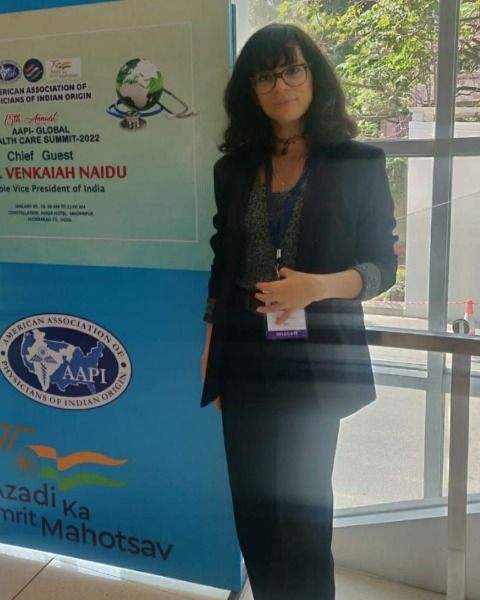Other
Why to choose Spine Surgery as a Neurosurgical Subspecialisation? An Analytical International Study
Friday, February 21, 2025
7:00 AM - 2:00 AM EST

Bhavya Pahwa, MBBS
Med Student
UCMS and GTB Hospital
Amritsar, IN
Presenting Author(s)
Introduction: This study was carried out with the objectives to understand the geographical and gender-wise trends in neurosurgical fellowships and to assess the factors that play a role in the decision-making while choosing a subspecialty with an emphasis on spine surgery.
Methods: An online survey was created and shared over various social media platforms. Responses were recorded from residents, fellows and spine trained/untrained neurosurgeons from January-April,2022. The survey was validated by 5 neurosurgeons. Survey focused on the exposure to spinal pathologies during training along with factors affecting the decision in choosing spine as a subspecialty.
Results: We recorded 207 responses. 85% of the respondents had 'adequate' exposure to spine surgery. 30% had completed a subspeciality training, of which 37% (23) had a spine fellowship degree. Of the few personnel trained/pursuing a spine fellowship, the majority of them were from North American countries, whereas the representation of Asian and African neurosurgeons as trainees in a subspeciality or pursuing one currently was minute (P=0.0205, < 0.001, respectively) There was only one female to have a spine fellowship degree, rest 22 were males.
Of the 147 non-subspecialised surgeons, 20% affirmed to pursue spine surgery in future. Overall, the majority of respondents felt that the lifestyle and salary of spine neurosurgeons made spine an attractive subspecialty (P < 0.001, 0.008, respectively). On subgroup analysis, fellowship trained spine surgeons felt Working with a mentor (P=0.021) and personal interest developed over the years (P=0.05) positively influenced the subspeciality choice; while the current spine fellows from the cohort stated choosing spine as a subspeciality was positively affected by personal interest (P=0.008) as well as research opportunities available (P=0.049).
Conclusion : This study highlights the scarce representation of women in spine surgery, depicting a global problem. Furthermore, study highlights the positive role played by a spine surgeon as a mentor to the fellows, residents and medical students, with an emphasis on females and students from lower middle income countries where opportunities and exposure is minimal. Studies like ours aid in identifying the loopholes and empowering the spine workforce with adequate representation.
Methods: An online survey was created and shared over various social media platforms. Responses were recorded from residents, fellows and spine trained/untrained neurosurgeons from January-April,2022. The survey was validated by 5 neurosurgeons. Survey focused on the exposure to spinal pathologies during training along with factors affecting the decision in choosing spine as a subspecialty.
Results: We recorded 207 responses. 85% of the respondents had 'adequate' exposure to spine surgery. 30% had completed a subspeciality training, of which 37% (23) had a spine fellowship degree. Of the few personnel trained/pursuing a spine fellowship, the majority of them were from North American countries, whereas the representation of Asian and African neurosurgeons as trainees in a subspeciality or pursuing one currently was minute (P=0.0205, < 0.001, respectively) There was only one female to have a spine fellowship degree, rest 22 were males.
Of the 147 non-subspecialised surgeons, 20% affirmed to pursue spine surgery in future. Overall, the majority of respondents felt that the lifestyle and salary of spine neurosurgeons made spine an attractive subspecialty (P < 0.001, 0.008, respectively). On subgroup analysis, fellowship trained spine surgeons felt Working with a mentor (P=0.021) and personal interest developed over the years (P=0.05) positively influenced the subspeciality choice; while the current spine fellows from the cohort stated choosing spine as a subspeciality was positively affected by personal interest (P=0.008) as well as research opportunities available (P=0.049).
Conclusion : This study highlights the scarce representation of women in spine surgery, depicting a global problem. Furthermore, study highlights the positive role played by a spine surgeon as a mentor to the fellows, residents and medical students, with an emphasis on females and students from lower middle income countries where opportunities and exposure is minimal. Studies like ours aid in identifying the loopholes and empowering the spine workforce with adequate representation.

.jpg)